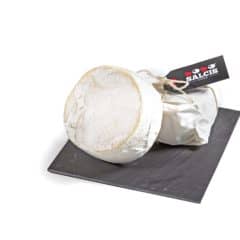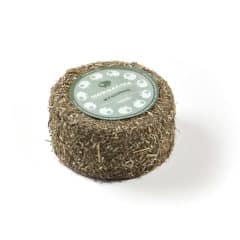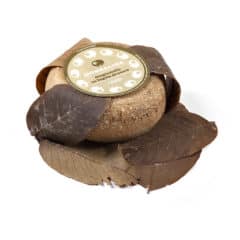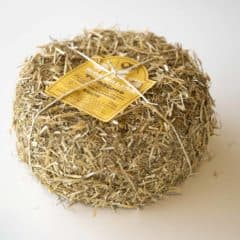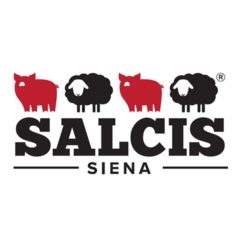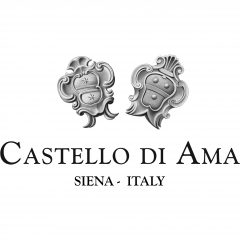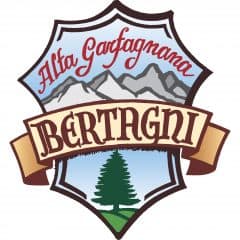A soft Pecorino cheese made with sheep milk, MonnaLisa Fiorita (meaning “flourish” or “flower”) is named for the edible flourishing rind of this type of cheese. This is part of a Piedmont tradition that makes a milder version of the Tuscan sheep’s milk white mold rind. For Fiorita, the rennet is added to the milk,…
Roughly 60 days after processing, SALCIS selects the best cheeses and moves them into natural caves of rock and tuff (a rock made up of volcanic ash). The cheese rinds are coated with flaxseed oil and hay for protection, and set to rest on pine wood shelves. Each cheese is monitored and turned at least…
Aging cheese in walnut leaves is in keeping with the tradition of the Siena area’s forefathers who used this method to preserve Pecorino during the warm months. The protection offered by the leaves allows the cheese to age slowly, taking on strong and antique flavor characteristics that are long forgotten among other Pecorinos. Serve with…
The flavor of this raw sheep’s milk cheese changes during the year according to the pasture-land and the sheeps’ diet. It is characterized by a strong personality with a hay-colored rind, and is covered in hay as it matures. This cheese is not heated or pasteurized, thereby maintaining many characteristics of the sheep’s milk. Production…
SALCIS was founded in 1941 during WWII with the goal of unifying the Tuscan Salamis producers in the area of Siena. The Morbidi family, which owns SALCIS today, traces its ownership back to Armando Morbidi, a society founder and owner of many Siena shops beginning in 1925. In the 1960s, the Society started its own…
Five centuries ago, Ama was a hub of farming and winemaking, nestled in the Tuscan hills at an altitude of almost 500 meters in the Chianti Classico region of Italy. Today, Castello di Ama comprises 90 hectares in vines and 40 in olive trees. Their olive orchard is maintained by hand and their olive oil…
The father and son team at Bertagni have humble shepherding roots and serious cheesemaking know-how. Bertagni cheeses are made in the nearly-inaccessible Garfagnana region. Tucked between the Apuan Alps and the Tuscan-Emilian Apennine, their cows, goats and sheep graze on the unique valley grass.
